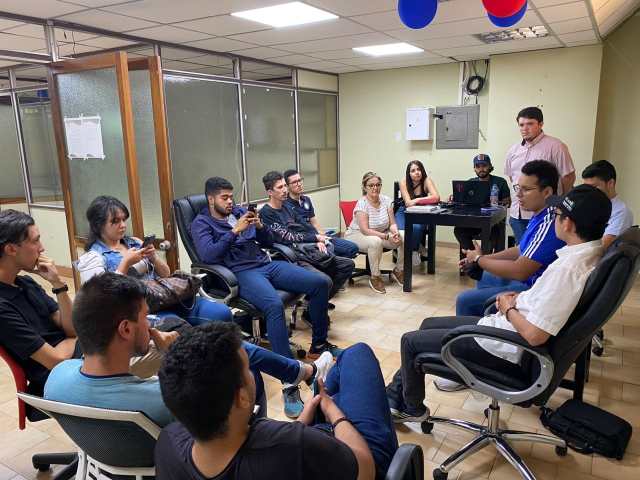
Edward Vergara is a young political activist and lawyer from Táchira State who has changed his way of thinking and acting in recent years. Since 2014, during the protests against Nicolás Maduro’s regime that took place in Táchira, Vergara became involved as a political activist but he did not believe in the electoral solution and distrusted the institutions. Now his vision has been transformed and he dedicates himself to educate young people from Tachira State on the importance of participating in the primary process and the upcoming presidential elections.
Anggy Polanco // Correspondent lapatilla.com
“I was a person who supported violent movements, but after I became part of the ‘Ignatius Leadership Program’ at the Catholic University of Táchira (Programa de Liderazgo Ignaciano de la Universidad Católica del Táchira) and with everything I have learned, I have opened my eyes in many ways,” said Vergara, who points out that all the methods at hand are viable to get out of a radical political problem like the one in Venezuela.
He emphasizes that the problem is not social or economic, but rather political, and that violence can never be and never will be the way. “The moment a political leadership calls for violence, for me it loses all support because violence brings more violence, and in our country we have learned that it only brings bloodshed and disappointment for people if change is not achieved. At the end of the day, the ruling party has weapons on its side and it is not the most ideal way to get out of this regime,” says the 23-year-old activist.
He remembers that most of the effective political transitions in the world have been through non-violent actions.
Build citizenship
An event that marked him and motivated him to get involved with political activism was when he was in his third year of university and decided to enter the Ignatius Leadership Program, with two axes: one experiential and the other formative. The first allowed him to go to Ciudad Sucre, a forgotten town that was an ancient project that would unite Colombia and Venezuela.
There he talked with a very humble family that lived in a hut. It was a family from Amazonas looking for a better opportunity in Apure State. What struck him was that the young woman was a teacher with a specialty in caring for special children, while her husband was an agro-industrial engineer, but neither could work, because there were no sources of employment.
Since then, Vergara has set out to work for political change in his country. Currently, he is a member of the ‘We Believe Citizen Alliance’ (Creemos Alianza Ciudadana), an organization that seeks to promote citizen participation and democratic reconstruction.
Vergara has been working on the training of polling station members for the opposition Primary Election, which will be held this October 22nd. His objective is to train young people so that they understand the importance of participating in electoral processes and of electing their representatives.
Through training workshops called democratic reconnection, they have given guidance to young people in different municipalities of Táchira. According to Vergara, many have been enthusiastic and interested in participating in the Primary, and have also encouraged others to register in the Electoral Registry.
“As a young person, I see this Primary as a very great opportunity for people to regain hope that there can be a change in the political model in the country, and personally I see it as the opportunity to be able to remain in the country for an indefinite period of time, do my life here and settle down,” he says.
The challenges of activism
One of the biggest challenges that Vergara has faced is the constant presence of the Bolivarian Intelligence Service (Sebin), which is always taking photos and monitoring his activities. “We are constantly aware that they are watching us and taking photos of us. In fact, we already recognize the people who follow us on the motorcycles taking photos,” Vergara acknowledged.
However, this has not intimidated him or made him give up his activism. On the contrary, this has strengthened him and made him more aware of the risks involved in fighting for democracy in Venezuela.
“We are not afraid, because we know we are doing the right thing. We are not doing anything illegal or violent, we are just exercising our right to political participation,” Vergara stated.
Another challenge that Vergara has had to overcome is people’s apathy and hopelessness, which he considers a major obstacle to change. Added to this is problem there is the political polarization, which is why the youth groups of ‘Creemos Alianza Ciudadana’ have tried to overcome this radicalization among traditional parties, such as ‘Acción Democrática’ (AD, Democratic Action).
“We have made great progress so that they stop fighting among themselves and unite towards a single cause, which is the recovery of democracy and freedom in Venezuela,” said Vergara.
It has also been difficult to bring together a group of 23 young activists and trainers, who have committed to the ‘Creemos Alianza Ciudadana’ project. Vergara coordinates them and motivates them to move forward, despite the difficulties and threats.

